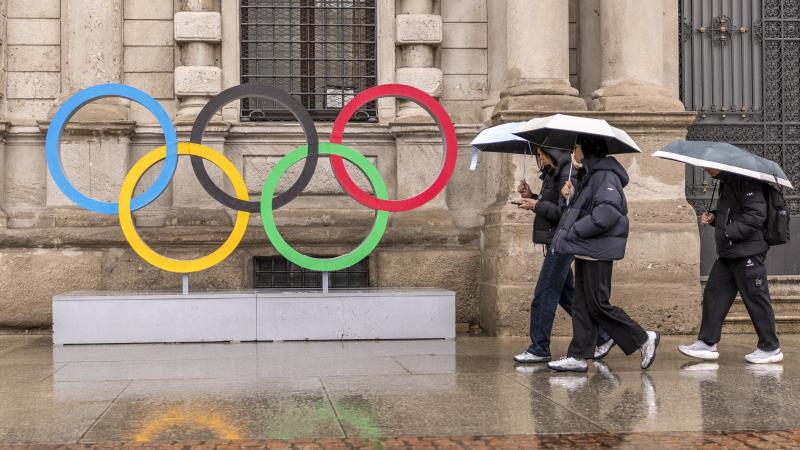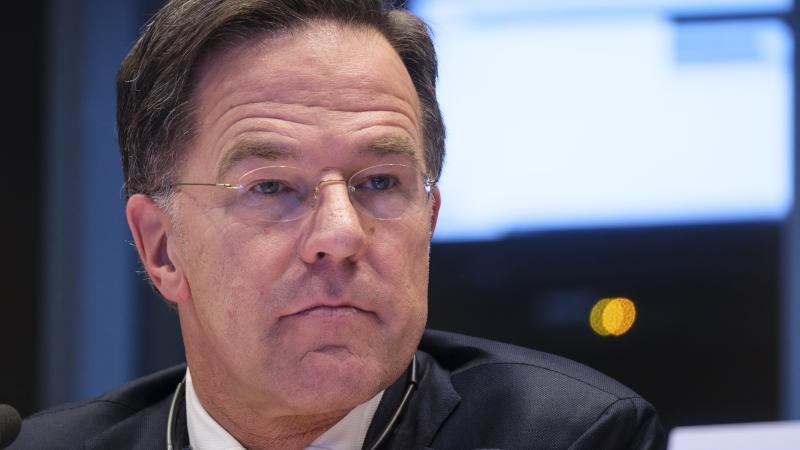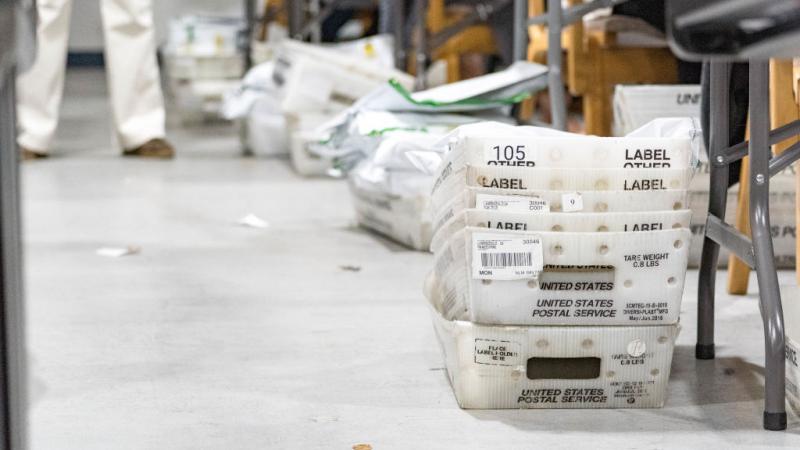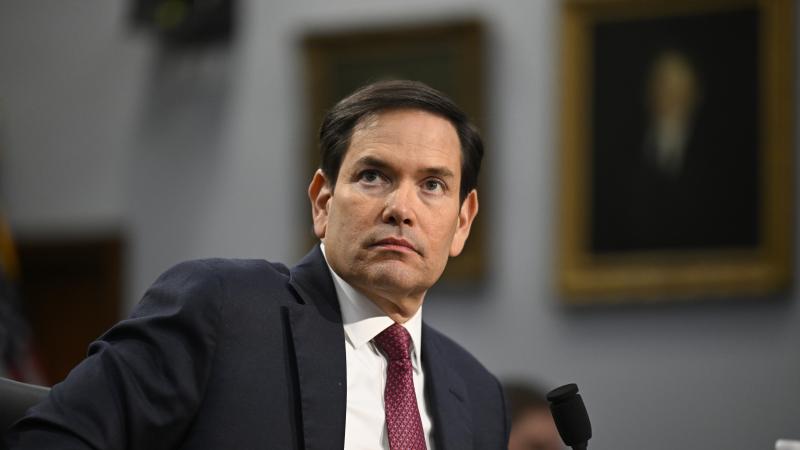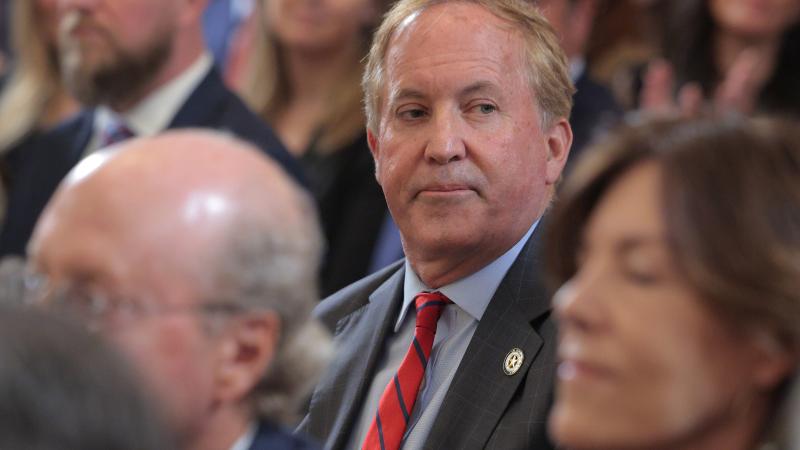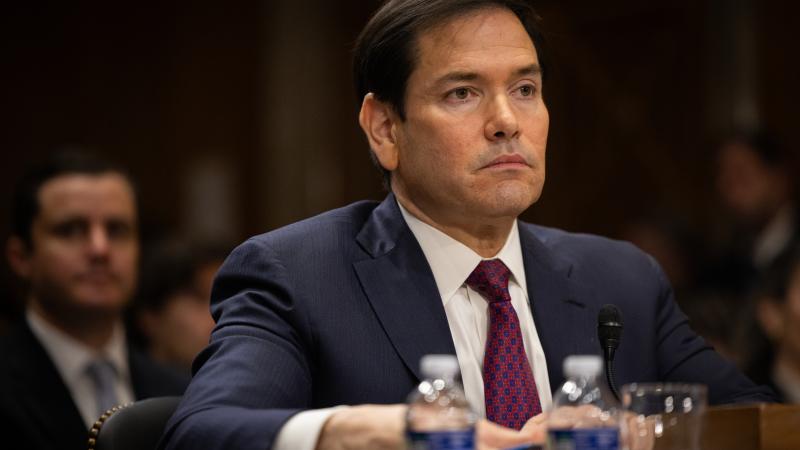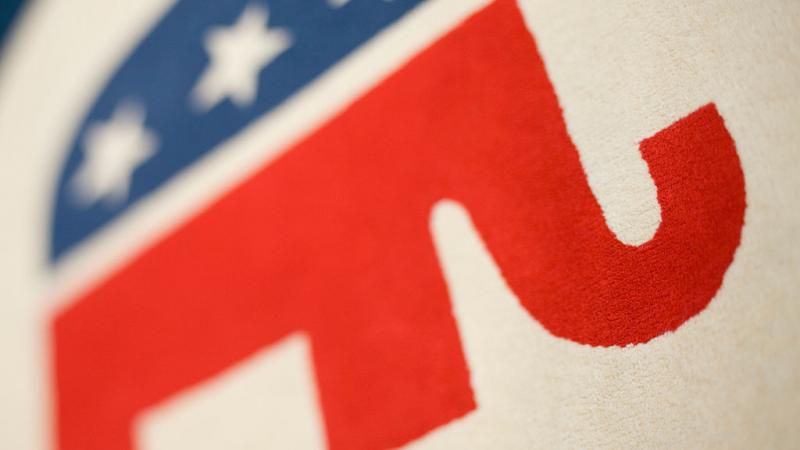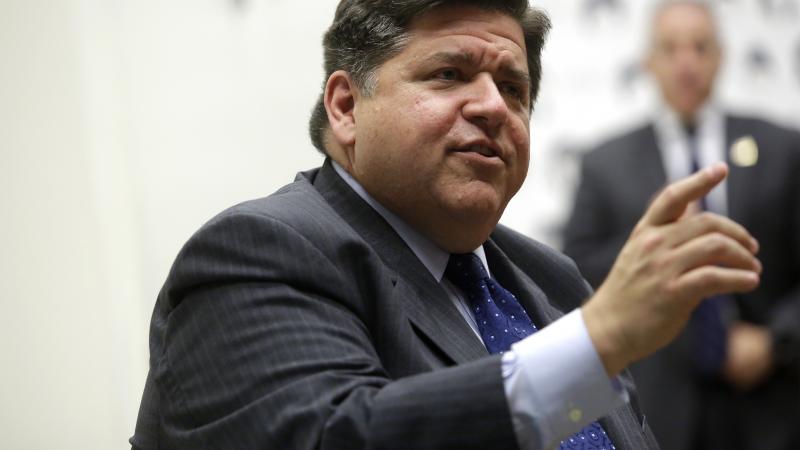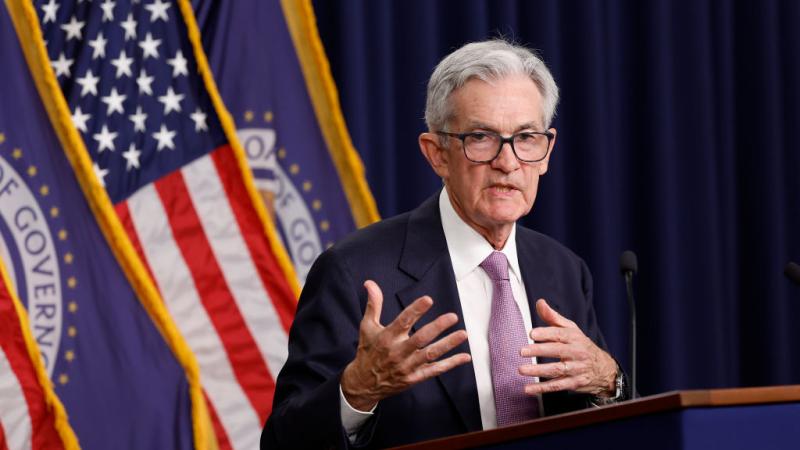'Delete, Silence, Abolish': America's estranged allies ramp up perceived censorship, speech rules
Ottawa, Brussels and Canberra grasp to control purported disinformation, hate, sex and violence within their own borders, but critics see global spillover inevitable. European Commission denies it will cave to appease Trump.
Overt government control of the internet is expanding within America's increasingly estranged allies and threatening to spill over national boundaries, likely renewing earlier confrontations with Vice President JD Vance, Secretary of State Marco Rubio and the world's richest man and creator of America's newest nascent political party.
The European Union last week made its officially voluntary three-year-old "Code of Practice on Disinformation" legally binding under the Digital Services Act. It's now a "Code of Conduct" to be used as a "relevant benchmark for determining DSA compliance" for Facebook, Instagram, LinkedIn, Bing, TikTok, YouTube and Google Search.
These "very large" online platforms and online search engines were already signatories of the 2022 code, whose commitments include taking "stronger measures to demonetise disinformation," increasing fact-checking across the EU and its languages and improved reduction of "current and emerging manipulative behaviour."
Australia imposed an age-verification law for harmful content that makes the Texas law recently upheld by the Supreme Court look like a type-your-age prompt, applying to not only pornography but also "violent content" and "themes of suicide, self-harm and disordered eating," in the words of eSafety Commissioner Julie Inman Grant.
Last week she registered three of nine "codes" submitted by the online industry, covering "search engine services … enterprise hosting services and internet carriage services such as telcos," and has sought "additional safety commitments" on remaining codes for "app stores, device manufacturers, social media services and messaging" and broader categories.
The same day, Canada suspended a U.S. tech firm tax to avoid trade recriminations from the Trump administration. Justice Minister Sean Fraser told the Canadian Press that Prime Minister Mark Carney's government is taking a "fresh" look at predecessor Justin Trudeau's proposed Online Harms Act, which went down in Trudeau's political downfall.
Anti-censorship group Reclaim the Net flagged pressure on Carney's government to revive C-63, which famed Canadian psychologist Jordan Peterson claims would criminalize wrongthink. Trudeau-appointed Senator Kristopher Wells pressed Government Representative Marc Gold to commit to further criminalizing "hate" in a "questions period" last month.
The Anglosphere turning on America for its sins, even predating the second Trump administration, appears to be the desired goal of a prominent progressive journalist and MSNBC regular.
"Our country needs to be sanctioned" by the international community as "the bad guys on the world stage," Elie Mystal recently told host Joy Reid, calling America "a menace" to both free and peaceful people for more than "the past three or four months." He was immediately referring to America's attack on Iran's nuclear facilities, Mediate reported.
Disinformation code cover resembles '1984' logo
"Brussels couldn’t have picked a more delicate moment for this move" to mandate the EU disinformation code, as it threatens U.S. trade talks and presages another situation like Canada's reversal on the U.S. tech firm tax, Reclaim the Net said.
European Commission spokesperson Thomas Regnier batted away speculation it would cave ahead of President Trump's July 9 deadline for a trade deal, Reuters reported. The Digital Markets Act, which regulates primarily U.S.-based "gatekeepers," and the DSA "are not on the table in the trade negotiations with the U.S.," Regnier said at a news conference.
He rejected Vice President Vance's censorship framing, claiming freedom of expression "lies at the heart of the DSA" and that the newly mandatory code aims to "protect against manipulation of online platforms, giving users more context and tools to navigate safely," such as through mandatory disclosure of so-called shadowbanning.
The hands-shaking cover page of the 56-page code may not help its reputation, recalling the "IngSoc" logo of totalitarian English Socialism in the film adaptation of George Orwell's 1984.
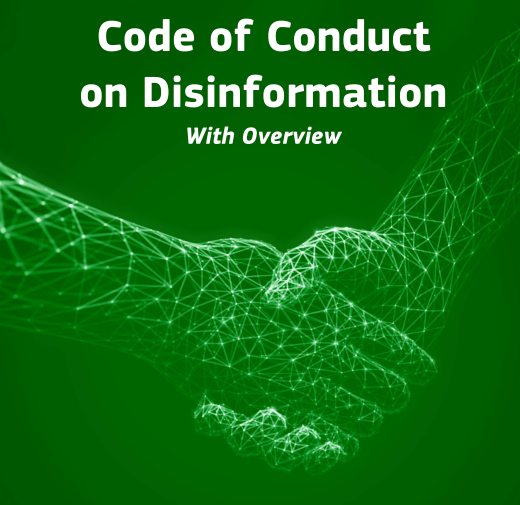
It says the 2022 code of practice, despite being officially voluntary, "was drafted with the aim" of becoming a DSA mandate. Signatories submitted the paperwork to convert it into a code of conduct in January, and the EC and European Board for Digital Services approved their request for a July 1 effective date, making its commitments "auditable from that date onwards."
"Trying to say governments are censoring is a fundamental misunderstanding of how technology works," Global Disinformation Index CEO Clare Melford told Tech Policy Press, whose board includes longtime disinformation cop Renee DiResta, now at Georgetown. “The speech that is actually being suppressed is moderate speech, because it’s less profitable.”
House Judiciary Committee Chairman Jim Jordan, R-Ohio, opened an investigation this spring into how European censorship could affect American speech, asking Commissioner for Justice and Rule of Law Michael McGrath about how the EU will respond to Poland's alleged attempts "to seek global removal of speech it disagrees with."
The EU has taken a "significant step toward strengthening online censorship," Alliance Defending Freedom International wrote on X. "The DSA threatens free speech across the world and must be repealed," it said, rebranding DSA as "Delete. Silence. Abolish."
By forcing platforms with 45 million or more users to remove content out of compliance with EU or any member-state's laws "now or in the future," the DSA creates a "lowest common denominator" that forces the least tolerant country's laws on all members, ADFI said.
The Vienna-based counterpart to the U.S. public interest firm ADF cheered when X owner Elon Musk shared its post with his nearly 222 million followers and added a simple "Yes."
"Many Americans don't realize that because of this EU law, Euro-style censorship could be coming to our shared online spaces," ADF President Kristen Waggoner responded to Musk. "The U.S. can and should take measures to resist it."
Musk has repeatedly tangled with European regulators over the DSA since acquiring the former Twitter, though his main antagonist, former Commissioner for Internal Market Thierry Breton, suddenly quit last fall after his unilateral demand that Musk not interview then-presidential candidate Donald Trump on X prompted a congressional probe.
'Building the plane a little bit as we’re flying it'
The three new Australian content codes, with penalties north of $30 million U.S. per breach, were approved by eSafety Commissioner Grant the same day Jordan's committee exposed her communications with a global advertising coalition on using boycotts to control what content platforms allow and even contain the "contagion" of Trump
An Australian regulatory review body also recently overturned Grant's order to X to block a post by Canadian child safety activist Chris Elston that called a female transgender activist a "woman." Last year, an Australian court refused to extend Grant's "global" block on another X post that showed video of a Muslim man stabbing a Christian bishop.
Grant's June 30 statement approving the codes said she tasked the online industry a year ago to draft codes to protect children from "a range of age-inappropriate content across the online ecosystem" and gave them several extensions in light of "domestic and international regulatory developments, including the social media minimum age."
But she rejected the final drafts in April under her Online Safety Act authority for not meeting "required safety protections." Now she wants further protections around "AI companions and chatbots" in light of "anecdotal reports from school nurses" that children as young as 10 are heavily using them and the bots encourage "harmful sexual acts or behaviours."
The content regulated by the codes includes three categories dubbed pornography – "material that describes or depicts specific fetish practices or fantasies," "actual (not simulated) sex between consenting adults" and "realistically simulated sexual activity between adults," according to Reclaim the Net.
It also covers "high-impact nudity" or "other high-impact material which includes high-impact sex, nudity, violence, drug use, language and themes," the last of which includes "social issues such as crime, suicide, drug and alcohol dependency, death, serious illness, family breakdown, and racism."
The New York Times this week predicted Grant's "herculean" effort could provide a blueprint for other governments worldwide, while also acknowledging the law is so vague it's not clear whether it covers YouTube, the most popular online service among Australian youth and the government has not released the results of its age-verification trial.
"We may be building the plane a little bit as we’re flying it" but I’m very confident we can get there," Grant told the National Press Club of Australia last month.
The Facts Inside Our Reporter's Notebook
Links
- Secretary of State Marco Rubio
- creator of America's newest nascent political party
- legally binding under the Digital Services Act last week
- signatories of the 2022 code
- commitments include
- Texas law recently upheld by the Supreme Court
- she registered three of nine "codes
- suspended a U.S. tech firm tax
- Canadian Press
- Online Harms Act
- Reclaim the Net flagged pressure
- C-63
- Jordan Peterson claims would criminalize wrongthink
- "questions period" last month
- Elie Mystal recently told host Joy Reid
- Mediate
- Reclaim the Net said
- Reuters
- Vice President Vance's censorship framing
- 56-page code
- IngSoc" logo of totalitarian English Socialism
- Tech Policy Press
- board
- longtime disinformation cop Renee DiResta
- Jim Jordan, R-Ohio, opened an investigation
- Alliance Defending Freedom International
- cheered when X owner Elon Musk shared its post
- added a simple "Yes
- ADF President Kristen Waggoner
- Musk has repeatedly tangled with European regulators
- Thierry Breton, suddenly quit
- unilateral demand that Musk not interview
- Jordan's Judiciary Committee exposed her communications
- overturned Grant's order to X to block a post
- Australian court refused to extend Grant's "global" block
- Reclaim the Net
- The New York Times
- Grant told the National Press Club of Australia
